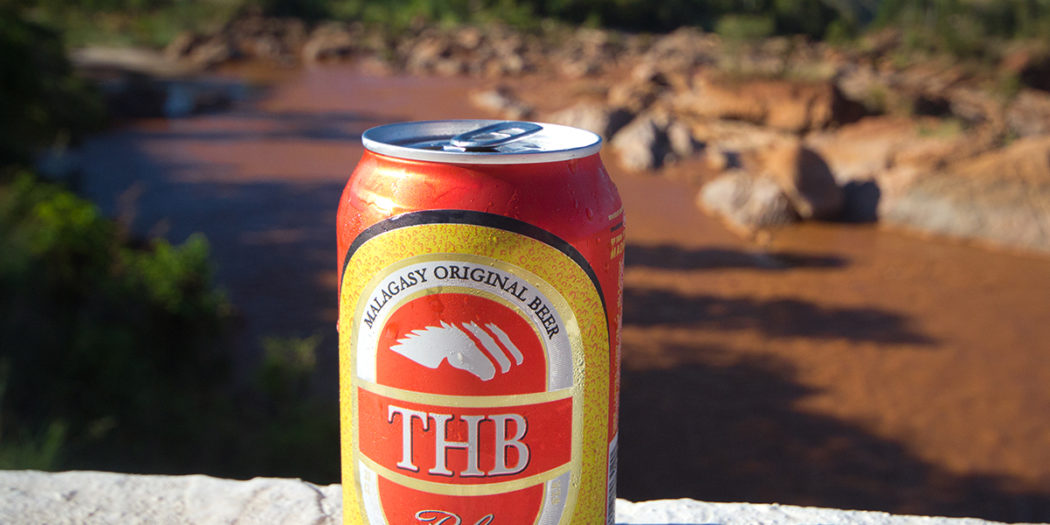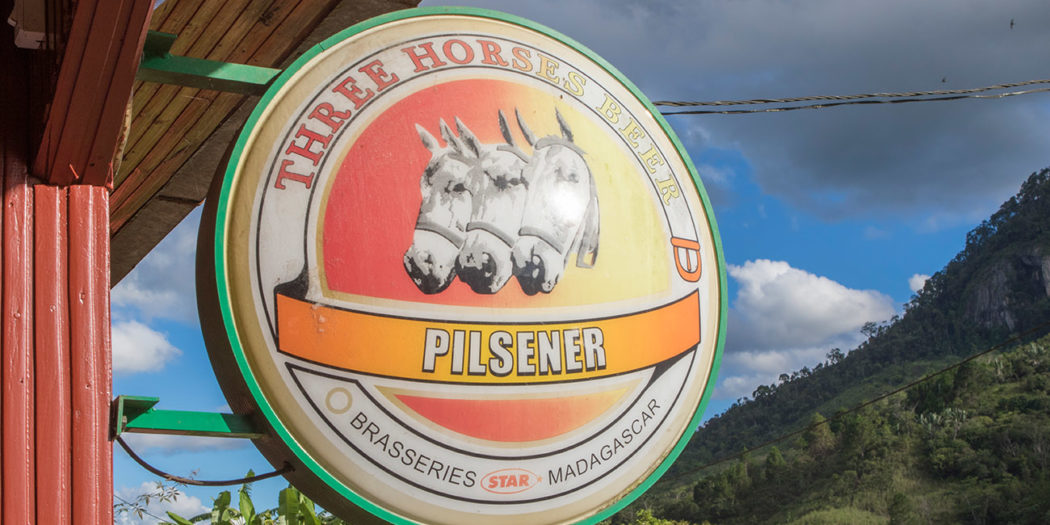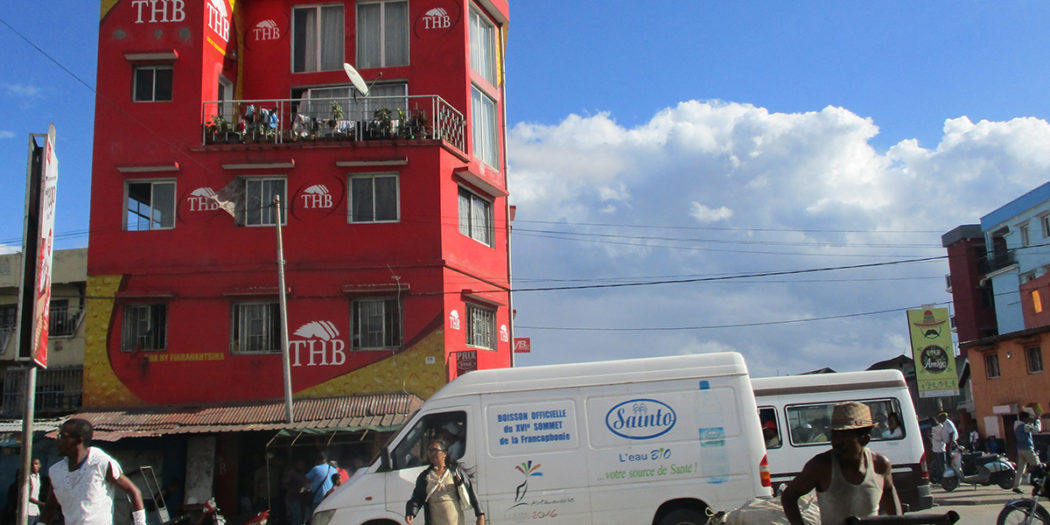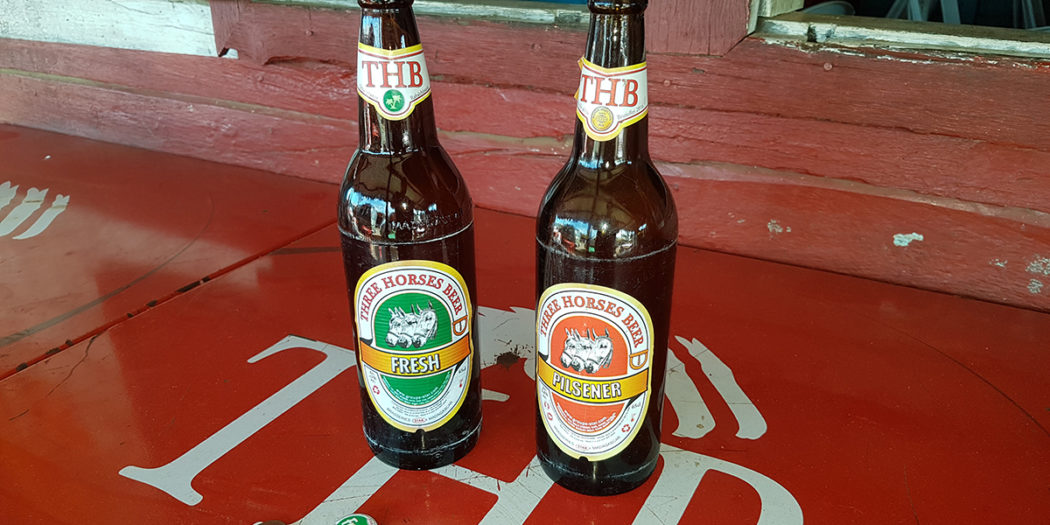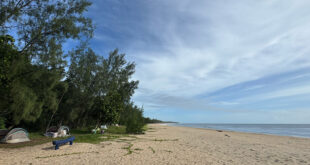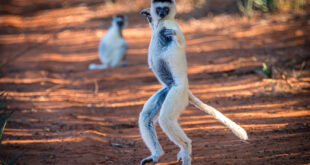Currently, there are very few types of beer in Madagascar. The most famous and widespread beer is THB. The abbreviation stands for Three Horses Beer. It is a pilsner that has been brewed in Madagascar since 1958. THB can be found even in the smallest villages – and usually chilled. It has 5.4% alcohol and is made from water, barley malt, corn, and hops. Barley and corn come from the highlands around Fianarantsoa, the hops from the south around Toliara (French Tuléar).
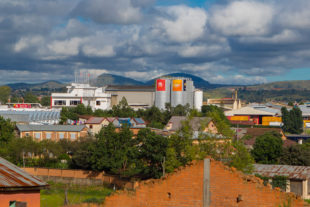
The beer is brewed in two STAR breweries (abbreviation for Societé tananarivienne d’artciles réfrigéres, translated as Society of Refrigerated Products in Antananarivo), which are now located in Antsirabe and Antsiranana. Originally, the brewery in Antsirabe belonged to the Dutch “Brouwerij drie hoefijzers,” who distributed the drink Coca Cola in Madagascar five years before the first beer. Their logo with the three horses was later simply adopted. In the 1960s, the second brewery was opened in Antsiranana (French Diego Suarez). In Antsirabe, in the southern highlands, a separate collective called MALTO was even founded in 1980 to produce enough barley to make THB. After several changes of ownership – at times the two breweries were even nationalized – the French company Castel acquired STAR in 2011. According to the brewery, around 100 million bottles and 100,000 cans of THB are produced per year today.
The brewing itself is done today almost exactly as it was many decades ago. Water heated to 40°C is first mixed with barley malt and corn in a ratio of 80:20. The resulting mass is called mash. Corn is used because growing wheat in Madagascar, with its tropical climate, is too unpredictable for large-scale production. The mash is heated for several hours. During this process, the starch of the barley malt and corn is converted into sugar. The mash is then lautered: the spent grains separate from the liquid portion of the mash, the wort. Hot water is used to flush all the wort out of the spent grains. It is then boiled with hops. Finally, the wort is filtered, cooled down to 10°C fermentation temperature and yeasts are added. The yeasts provide the main fermentation, during which sugar is converted into alcohol. The fermentation lasts a whole week, then you have the so-called young beer. This still very fresh THB continues to ferment in barrels for a few days. Only then is the finished THB filtered again and bottled.
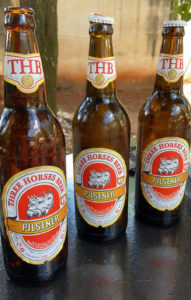
THB is always filled in brown glass bottles or cans, the most common variant being the 0.65 l bottle. Less frequently, 0.33-liter bottles are found, and 0.33-liter cans are also available in supermarkets. Before the political upheaval in 2009, there were several variants of THB on the market, including THB Lite with only 1% alcohol content, THB Special with 6.2% alcohol, THB Malt as a malt beer variant, and THB Fresh. Today, only THB Fresh remains, a mixed drink of lemonade and beer with less than 1% alcohol. Currently, almost three-quarters of the Star Brewery’s revenues are generated only by THB.
THB’s slogan, “Soa ny fiarahantsika,” alludes to the Malagasy fihavanana. Fihavanana describes a concept of friendship but also includes kinship, family, relationships among and with each other, and brotherhood. It is about always treating others with kindness and being aware that all sayings and actions will reflect on you later. There is no literal translation because Fihavanana is a part of Malagasy culture and is used very ambiguously. THB Pilsener is understood as a symbol of Malagasy culture, not least because of its traditional slogan. THB’s marketing adapts to this: Music videos featuring Malagasy celebrities such as AmbondronA or Jaojoby are part of the strategy, as is sponsorship of a wide range of events in the sports and music sectors. Among other things, THB sponsors the THB Champions League, the national soccer championship. The annual THB Tour Traveling Music Festival and the THB Fête de la bière are also part of the marketing lineup. The latter was last held in October and was organized jointly with the German Embassy. Since 2015, STAR has been promoting a second slogan, “THB eo foana e!”, forever THB.
Already 16 years ago the export of THB to Mauritius, France, La Réunion, Mayotte, and Comoros was started. Despite the export to France, THB is almost impossible to get in Europe. Only at specialized beer traders, you can find single bottles from time to time. If you want to drink a real THB, you have to travel to Madagascar. And it’s not only worth it for the beer!
 MADAMAGAZINE Your Magazine about Madagascar
MADAMAGAZINE Your Magazine about Madagascar
